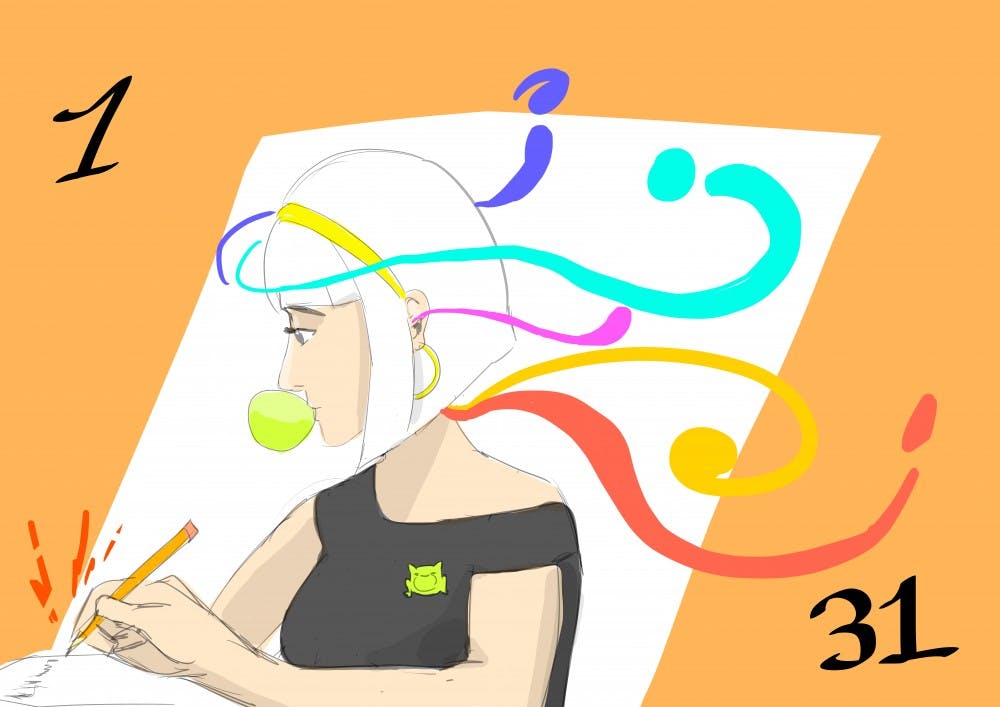When I was six years old, my parents gave me a diary, purchased by my aunt, because I had an issue with telling everyone our personal business. I can’t say that having a diary helped me to stop doing that (that was only mitigated after I opened my big mouth one too many times), but the habit of journaling has stuck with me for the 12 years since then. That being said, for many years my journaling was reserved for random days of intense anger and sadness spread throughout the months and years—all of these entries staying in one light green diary that became increasingly tattered, with the following misspelled words in Comic Sans on the front: “No matter how far apert we are, we are united tighly with sincere blessing and yeaning”, referencing the distance between my Israeli aunt in Haifa and me in Philadelphia.
I can’t say it’s that bad that I don’t have detailed chronicles of my childhood, because there really are some things that I’m okay with forgetting. However, once I got to college and started to enjoy my daily life (for the most part), I wanted to be able to remember the stupid minutiae of my new life. Also, that diary I had for 12 years was starting to fill up, and only reading entries of intense emotion made my life seem much more dramatic and slightly more depressing than it actually was. So, I bought a five–year journal with daily slots on Black Friday and decided to start on January 1st, 2019.
Since then, I’ve been fascinated by all of the great things I’ve forgotten in the past month: that one dinner with my friends that made me happy, a compliment that made my day, or a really great conversation with someone I missed. Writing down how my day went or tracking my mood has helped me become more grateful for all of the good things in my life, and has also made me more mindful of what causes the bad days.
However, it’s not just me who journals regularly and reaps the benefits—a lot of other Penn students do, too. Lisa Brover (C’22) has been journaling since sixth grade, sometimes daily, sometimes more sporadically. She noted the benefits, saying, “I felt like I was doing my future self a favor by keeping track of what I was doing at the time…maybe I could type it up, edit it, and make it something that was worth reading.”
Karen Pan (C’22) has been journaling daily for 12 years. She emphasized how helpful it was to have a journal when reflecting on the transition to college. “I remember when I first got in college, a couple weeks before I was supposed to move in, I was super super sad because I was leaving my boyfriend, I was leaving my friends, I was leaving my family from back home. That’s what I wrote down in my journal, about how sad I was about going to college and all this stuff," she said, detached from those negative emotions as if they happened to someone else. “Now that I look back on it...it’s a really good way of reflecting on who you’ve been as a person and how far you’ve come just from experiencing the hard times in your life.”
While both Lisa and Karen were initially forced to keep a journal—Lisa for an English class and Karen by her mother—they have continued to integrate the habit into their routine, to find time during their busy lives at Penn to write down their feelings and chronicle their lives, which is something they are both grateful for.
Health experts agree on the mental and potentially physical benefits of journaling. The University of Rochester Medical Center lists that journaling can help you manage anxiety, reduce stress, and cope with depression by helping you track your problems, fears, or triggers, and providing a space to deal with negative thoughts. In a stressful college environment, it's important to have an outlet for the strong emotions or difficult situations that we will all inevitably face, and a journal can help with that.
Even if it’s not that deep for you, journaling is still a great way to remember the craziness that is college and have some memories that aren’t of the Snapchat variety. We all need to slow down every now and then and take time for ourselves. These days, people see self–care as something that only happens with a face mask, ice cream, or Netflix, but maybe next time, consider a more present version of it, one that requires you to deal with your emotions head on.

